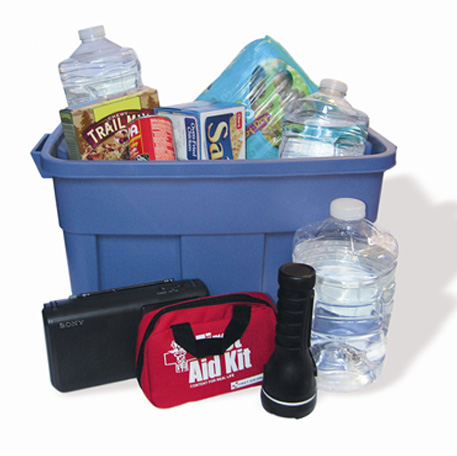Virginia Cooperative Extension encourages the public to be prepared for disasters

September marks Emergency Preparedness Month, and Virginia Cooperative Extension encourages families to be disaster-aware and take action to prepare.
“Families can prepare for natural disasters, such as tornados and hurricanes and weather-related power outages, by assembling an emergency kit to keep in their home, car, and on their person; by developing a communication plan; and by paying attention to local weather conditions and emergency alerts,” said Michael Martin, Virginia Cooperative Extension emergency response and preparedness coordinator. “A disaster can strike anyone, anywhere, and sometimes without notice. This makes it essential for families to form a safety plan.”
An emergency kit should contain enough items to supply food and water for your family for at least three days. Examples of items your home kit may contain include:
- One gallon of water per person, per day.
- Nonperishable food.
- Hand-cranked or battery-powered weather radio with extra batteries.
- Flashlight and extra batteries.
- First aid kit.
- Prescription medications.
- Hand-operated can opener.
- Personal care products.
- Food and water for pets.
In addition to an emergency kit, Martin encourages every family to have a communication plan with phone numbers of individuals to contact in case of emergencies.
“Since it is possible that family members may get separated during a disaster and may not be able to get in touch with each other, you should identify a person in another locality or even in another state whom each person would contact,” said Martin. “You can also identify a common meeting place in your community should you not be able to access your home. A written plan should be given to each family member to keep with him or her at all times."
If home evacuation is necessary in the event of a natural disaster, it is important to listen to the radio for more information, follow the guidance of emergency personnel, and make sure that all family members are familiar with the:
- Best exits out of your home.
- Community meeting place.
- Local radio station.
- Location of the emergency kit.
- Plans for care of pets and livestock.
- Plans for movement of family members with special needs, such as the elderly or disabled.
Martin also suggests that families keep cars at least half filled with fuel because, in an emergency, fuel may not be available.
For more information on making plans for disaster preparedness, visit the Virginia Department of Emergency Management's Ready Virginia website or the Virginia Cooperative Extension storm and emergency preparedness website.




